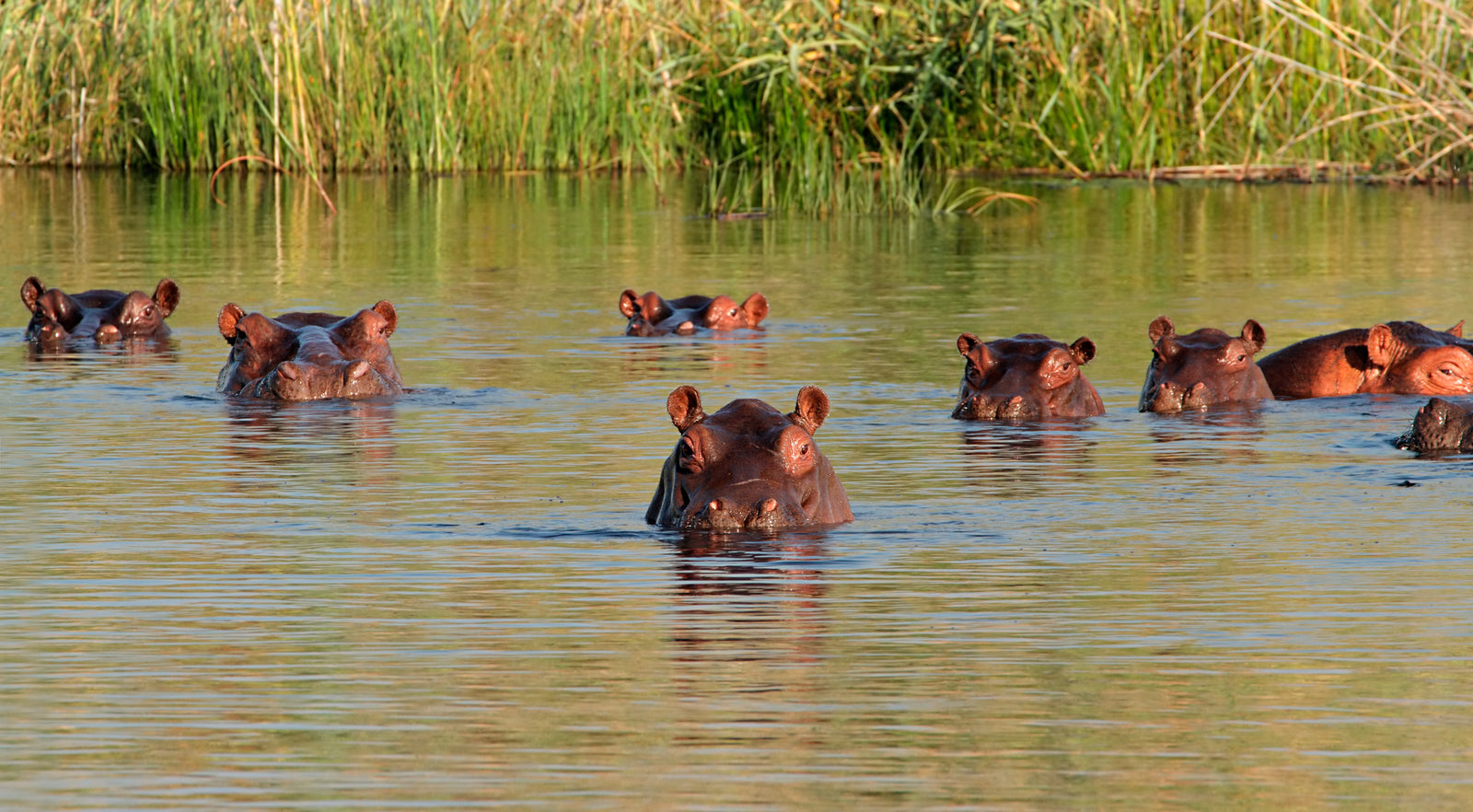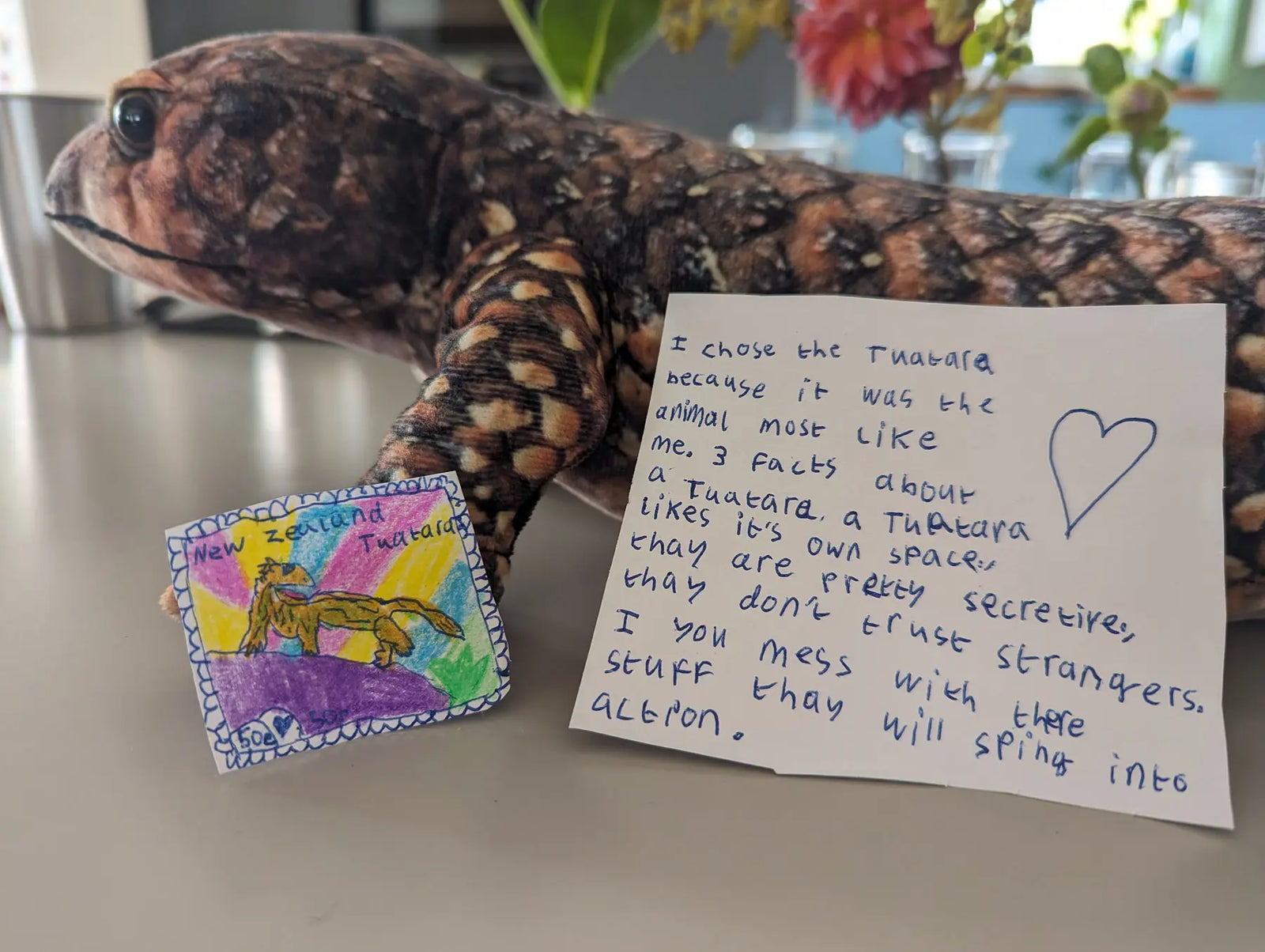Your Cart is Empty
The teeth at the front of a hippo’s mouth are actually tusks. Hippos, however, are herbivores – which means that they don’t eat meat – and can get through 68kg of grass in one feeding. These razor-sharp tusks are instead used to ward off and, in some cases, fight anything they deem to be a threat, including other male hippos and even humans.

© Shutterstock
Despite being the second largest land mammal on the planet, with males weighing up to a staggering 3,600kg, and spending the majority of their time in the water, hippos have the ability to run at speeds of 30km/h. That’s faster than most humans!
It’s easy to assume that hippos would be related to elephants and rhinos. However, DNA evidence has shown that hippos don’t actually have any land-living relatives. Instead, their closest relatives are whales. Based on fossil records, both species are connected to land-dwelling mammals that roamed the Earth 52-47 million years ago.

© Hennie Van Heerden
Being out in the African sun all day can take a toll on an animal's skin. Hippos have unique glands in their skin, which secrete a kind of slime that turns reddish-orange when exposed to air. This oily fluid contains pigments that work just like suncream, protecting the mammal from the harmful rays that cause sunburn.
Hippos tend to live in groups of up to 20 individuals, known as a herd. This is led by one dominant male, who is very protective of his group of females and their young. Female hippos, known as cows, give birth to a single calf every two years. It’s important that the young calf and mother stay close to the rest of the herd for protection from animals such as crocodiles, lions and hyenas, which prey on the young hippos.

© Shutterstock
World Hippo Day is celebrated every year on the 15th February. Although its origins are unknown, as with many of the animal awareness days we celebrate throughout the year, many people around the world take this as an opportunity to learn more about the hippopotamus.
The International Union for Conservation of Nature (IUCN) has classified the hippopotamus as Vulnerable, which means it is susceptible to extinction, because its population is in decline.
Sadly, hippos are at risk from humans who kill them for a number of reasons, including to lower the chance of human-wildlife conflict, for food, and for their ivory tusks. Also, with the growth of the human population, hippos are suffering from habitat loss as settlements, roads and agricultural production sites are being set up on areas that were once these mammals’ homes.
Comments will be approved before showing up.
Thank you so much to everyone who entered our Autumn Nature Art competition. We loved seeing how you explored the outdoors, collected natural materials and turned them into thoughtful, creative artworks inspired by autumn.
What an incredible fleet of rockets you launched into our inbox this month! Each design showed a different way to turn everyday scraps into something extraordinary. Some rockets looked ready for deep-space exploration, others carried alien crews, and a few were so beautifully decorated they could ha...
Meet the winners of our New Zealand postage stamp competition and explore a gallery of brilliant children’s designs celebrating Aotearoa’s unique wildlife.



